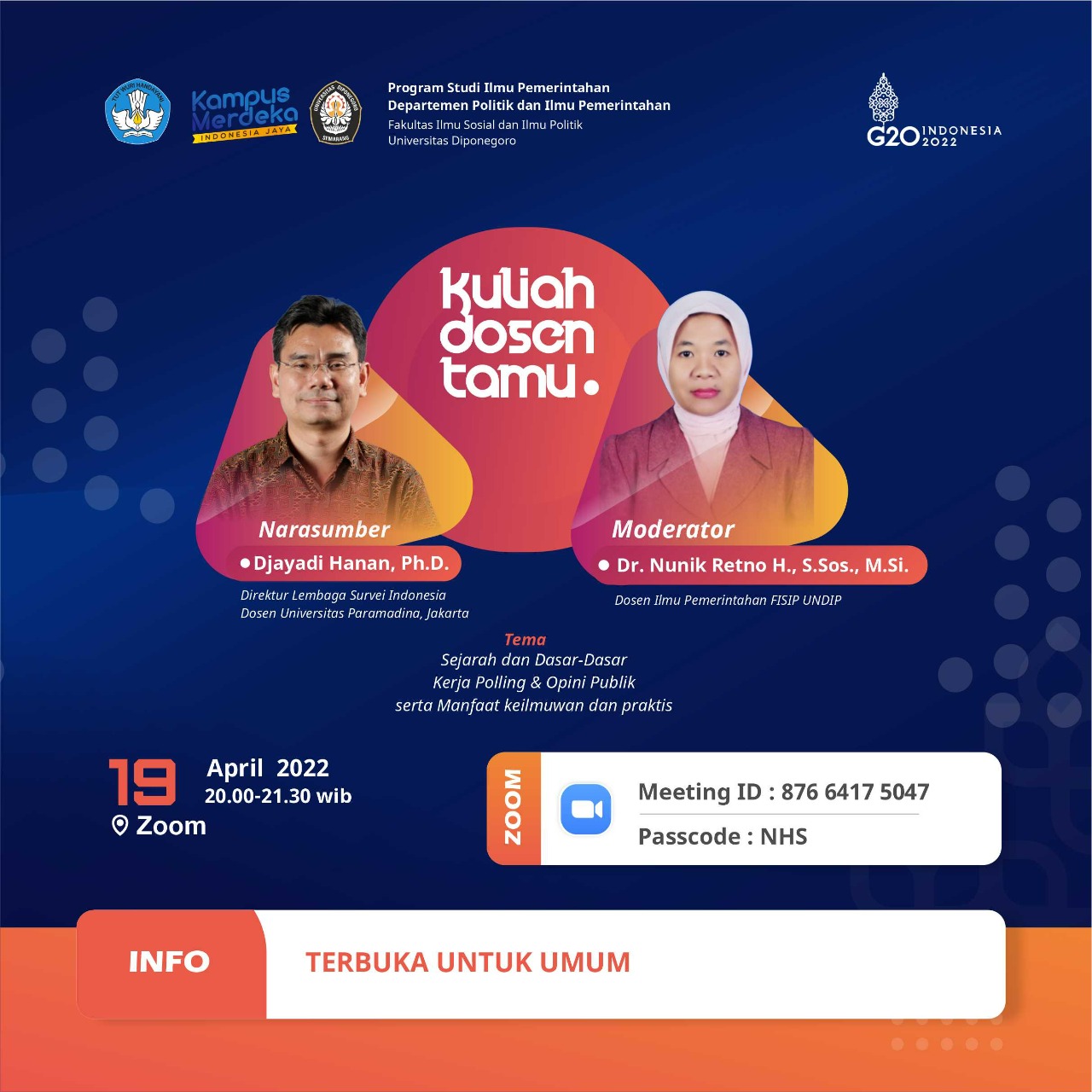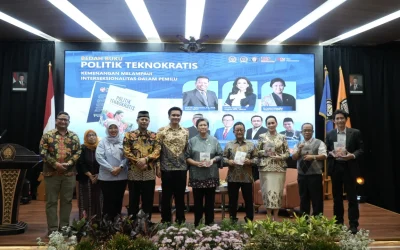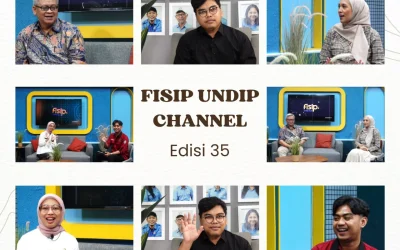Program Studi Ilmu Pemerintahan, Departemen Politik dan Ilmu Pemerintahan, Fakultas Ilmu Sosial dan Ilmu Politik, Universitas Diponegoro menyelenggarakan Kuliah Dosen Tamu bertema “Sejarah dan Dasar-Dasar Kerja dan Opini Publik serta Manfaat Keilmuan dan Praktis” bersama Djayadi Hanan Ph.D (Direktur Lembaga Survey Indonesia/Dosen Universitas Paramadina, Jakarta) dan dimoderatori dr. Nunik Retno., S.Sos., M.Si (Dosen Ilmu Pemerintahan Fisip Undip), kamis (19/4).
Dalam materinya Djayadi Hanan menyampaikan opini publik adalah reaksi atau sikap warga terhadap isu-isu dan peristiwa-persitiwa terkini dan spesifik. “Opini publik perlu diketahui, caranya adalah bertanya kepada publik, dengan menanyai seluruh anggota publik atau sensus, menanyai sebagian anggota publik dengan asumsi sebagian anggota publik opininya bisa sama dengan keseluruhan atau sebagian besar anggota publik, atau dengan polling atau survey. Populasi merupakan kumpulan seluruh elemen atau objek yang diperhatikan sedangkan sampel adalah sebagian anggota populasi sebagai landasan untuk menyimpulkan populasi” tuturnya.
Lebih lanjut ia mengatakan untuk langkah-langkah proses survey yakni menentukan tujuan riset, menentukan populasi target, memilih mode dan desain survey, memilih sampling frame, memilih metode sampling, membuat kuesioner, melakukan pre-tes kuesioner, merekrut responden, melakukan interview, memproses data, menganalisis data, dan membuat laporan. Dalam menjelaskan opini publik perlu diperhatikan faktor-faktor apa saja yang memengaruhi publik memiliki opini tertentu dan terdapat tiga teori besar atau penjelasan utama yaitu sosiologis, psikologis, dan rasional atau rationality atau pendekatan ekonomi-politik.
Kekuatan opini publik secara sosiologi, manusia sebagai makhluk sosial tentu akan berhubungan dengan manusia yang lain, baik sebagai pribadi maupun dalam kelompok bersama dengan individu atau kelompok-kelompok lainnya. (Lin-Humas)
Sumber: undip.ac.id/




0 Komentar